 |
 |
View Basket |
|
|
|
Systems Thinking Editors: Harold "Bud" Lawson (coordinator), Jon P. Wade and Wolfgang Hofkirchener Systems Thinking is a way of thinking that, in contradistinction to traditional analysis, does not break down entities in separate parts, but is concerned with how the parts are interacting such that they reproduce or transform a whole. Thus it attempts to understand the parts in relation to the whole. It comes in different varieties: it helps problem solving in everyday life; it gives science and engineering a sound foundation; and it can itself be substantiated by systems philosophy. Systems Thinking builds upon the pioneering Systems Science contributions of Ludwig von Bertalanffy in the 1920s, Jay Forrester, Russel Ackoff, Ross Ashby, Staffard Beer, Wes Churchman, Peter Checkland, Peter Senge and others have made important contributions to Systems Thinking in the latter half of the 20th century. Peter Senge defines and describes Systems Thinking as a discipline, where: "Systems thinking is a process of discovery and diagnosis: an inquiry into the governing processes underlying the problems we face and the opportunities we have." - a discipline for seeing wholes - a framework for seeing interrelationships, for seeing patterns of change rather than static snapshots - a set of general principles-distilled over the course of the twentieth century, spanning fields as diverse as physical and social sciences, engineering and management - also a specific set of tools and techniques. According to Senge, a good systems thinker, particularly in an organizational setting, is someone who can see four levels operating simultaneously: events, patterns of behavior, systems, and mental models. (Senge et.al. 1994). Peter Checkland (Checkland 1993), starting himself from a systems engineering perspective, successively observed the problems in applying systems engineering to the more fuzzy ill-defined problems found in the social and political arenas. Thus he introduced a distinction between hard systems and soft systems. Hard systems of the world are characterized by the ability to define purpose, goals and missions that can be addressed via engineering methodologies in attempting to in some sense "optimize" a solution. Soft systems of the world are characterized by extremely complex, problematical and often mysterious phenomenon for which concrete goals cannot be established and which require learning in order to make improvement. Such systems are not limited to the social and political arenas and also exist within and amongst enterprises where complex, often ill-defined, patterns of behavior are observed that are limiting the enterprise ability to improve. While it is difficult to get a precise definition of the Systems Thinking discipline, a variety of methods and tools have evolved that provide the means for developing deeper understanding of complex systems. It is quite clear that Systems Thinking serves its purpose in Systems Science as well as Systems Engineering. Therefore book proposals that advance Systems Thinking; especially when coupled to Systems Science and/or Systems Engineering are most welcome. References: Checkland, P. (1993) Systems Thinking, Systems Practice, John Wiley, Chichester, UK. Senge, P.M., Klieiner, A., Roberts, C., Ross, R.B., and Smith, B.J. (1994) The Fifth Discipline Fieldbook: Strategies and Tools for Building a Learning Organization, Currency Doubleday, New York. |
| © 2005–2024 College Publications / VFH webmaster |

